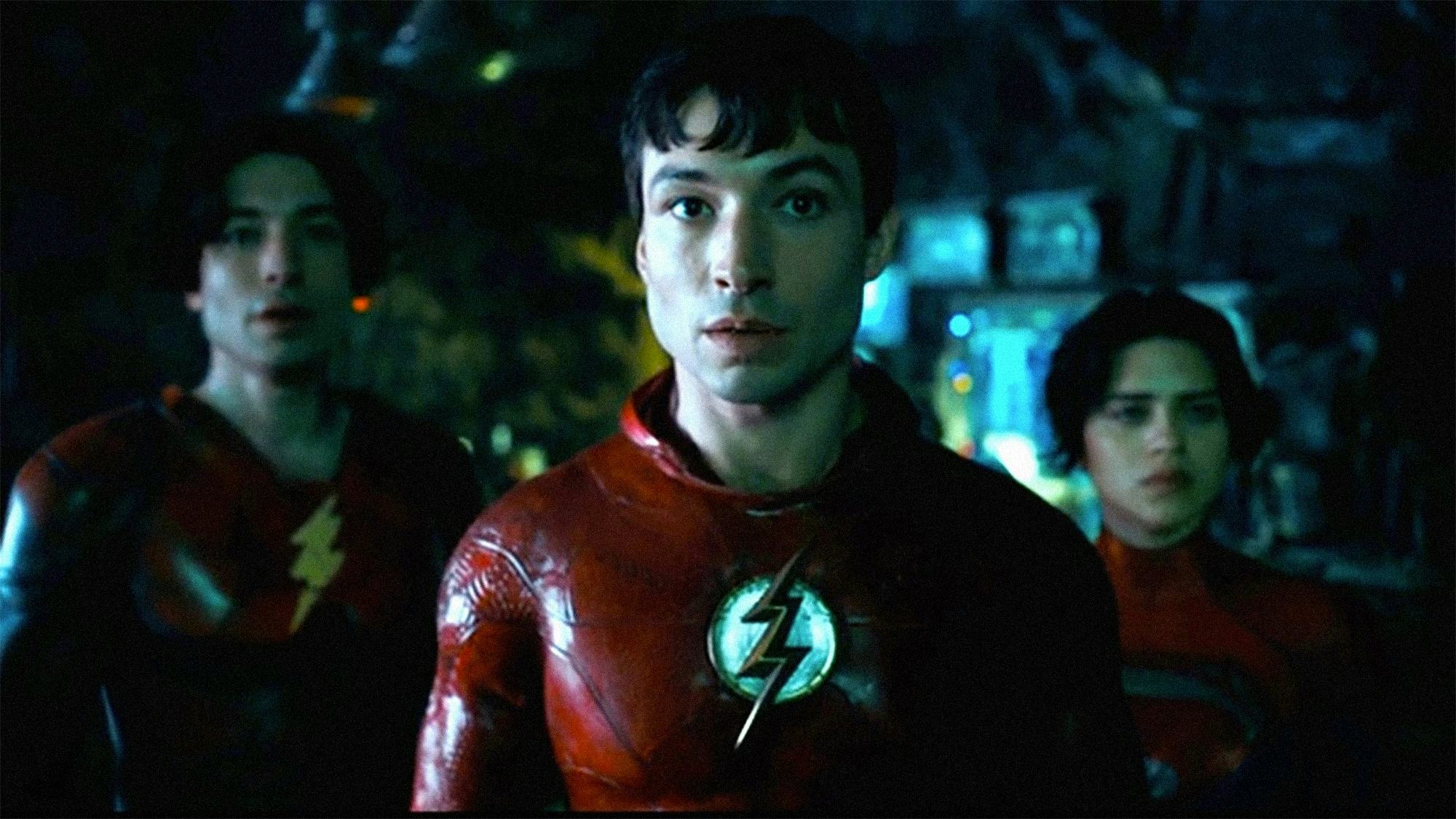
Like any filmmaking concept, the multiverse can be an effective tool... or a flimsy excuse to lure audiences in with the promise of nostalgia. As one of the final films in DC’s Extended Universe — and also the first to address its unwieldy multiverse head-on — The Flash had a tall order to fill. The film also serves as a long-awaited solo adventure for its hero, making Barry Allen (Ezra Miller) the key that unlocks DC’s own multiverse of madness.
In an effort to prevent his mother’s murder, Barry uses his speedster powers to change the past. He succeeds, but upsets the natural balance between an infinite number of parallel universes. One much-discussed moment finds Barry in the Chrono Bowl, a realm where he can peek into different worlds. There, Barry catches a glimpse of multiple heroes from the past, like Adam West’s Batman, Christopher Reeve’s Superman, and even Nicolas Cage’s ill-fated Man of Steel. It’s quickly become one of the most divisive parts of the film, and given Miller’s off-screen exploits, that’s saying something.
The ethics of reviving dead actors, and with such shoddy CGI to boot, are inherently icky. But it might be even worse knowing that the audio for these scenes was ripped from YouTube, of all places.

Nancy Nugent, The Flash’s supervising sound editor, recently spoke to ScreenRant about creating those uncanny cameos. While the visual effects team used CGI to reconstruct Reeve’s and West’s youthful visages, the sound team scoured YouTube to find clips of the deceased actors in character.
“It was just a matter of finding out what we were legally allowed to use — which properties, and whose voices, and all of that — and then finding it on the internet and cleaning it up,” Nugent said. “[We were] finding those old clips, and then it was a matter of removing music if there was music tied to it, or just cleaning it up.”
Because the Chrono Bowl sequence is such a “design-y moment,” Nugent and her team were likely counting on The Flash’s film score to mask any weird editing. “If it was just playing by itself, [it] might require us digging deeper into the archives — if that stuff even existed,” Nugent said.

That old footage of Warner Bros.’ most well-known properties wouldn’t be accessible in the archives is surprising, to say the least. But it does speak to the team’s resourcefulness. Whether you love it or hate it, The Flash’s creators were working with limited resources and tight constraints to bring DC’s multiverse to life. Nugent and her team clearly did everything they could to make The Flash work, but unfortunately, it became an exercise in what not to do with the multiverse.







